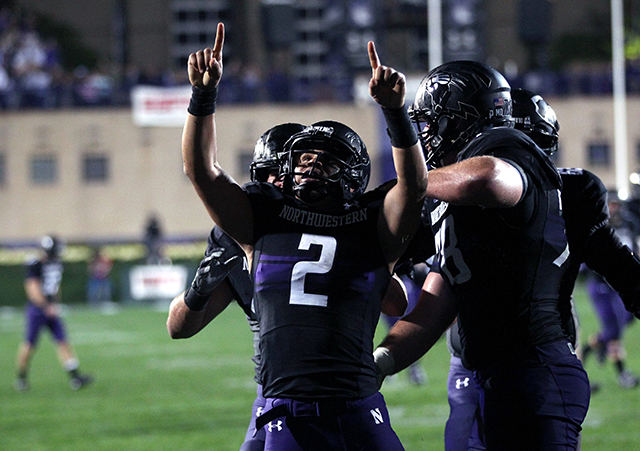NLRB Goes Deep: Why College Football Might Never Be the Same
Ryan O'Donnell /
Talk about a Hail Mary. Students who play football at Northwestern University can form a union, according to a surprising, much-noted ruling by a regional director of the National Labor Relations Board.
Peter Sung Ohr’s 24-page decision holds that “all-grant-in-aid scholarship players for the [Northwestern] football team who have not exhausted their playing eligibility are ‘employees’ under [federal law].”
The ruling Wednesday raises one big question: How can student-athletes also be employees? The NLRB official concluded the players “are not primarily students.”
James Sherk, senior policy analyst in labor economics at The Heritage Foundation, can see it from the players’ side, too, but takes exception to the decision.
“The players have a legitimate beef: They bring in millions in revenue for their schools and get little compensation besides a scholarship,” Sherk told The Foundry yesterday. “They ought to enjoy the fruit of their labor. However, haphazard unionizing under the NLRB would devastate college athletics.”
Ohr reached his decision after considering several pieces of evidence from a hearing, including:
- The players are subject to special rules that do not apply to the rest of the student body.
- The players make a considerable time commitment: 50 to 60 hours a week on “football duties” during a month-long training camp before school begins, then 40 to 50 hours a week during the regular football season. (Preparation for bowl games can extend the length of the season, increasing these numbers.)
- The players’ time put in for football constituted “many more hours” than the players spend on their studies (about 20 per week).
Even so, Sherk observes:
It would be absurd to imagine players going on strike before March Madness demanding better dorms, easier classes, or later start times for those classes. But this decision would permit exactly that. A better approach is the anti-trust lawsuit being filed against NCAA rules forbidding compensation for their athletes. Student athletes should be free to sign licensing deals and enjoy some of the profits their athletic prowess makes possible.”
Although Northwestern University likely will appeal the decision, it looks like only the beginning of the push to organize student athletes.
By exploring some creative—and, frankly, fair—solutions to the player’s concerns over compensation, the NCAA could pull off a two-point conversion: Find a way to reward players for their work, and avoid haphazard unionizing that could jeopardize entire programs and disrupt the lives of other students.

